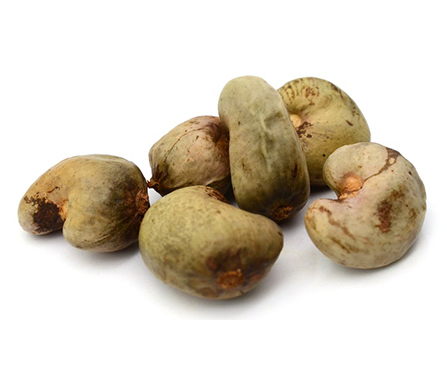
Raw Cashew Nut
Nigeria cashew nuts are used for cooking, making sweets, chocolates etc. Phosphorus, protein, dietary fibre and magnesium are some of the nutrients and minerals available in these nuts. Nigeria has an average 325,000 ha of cultivated areas of cashew nuts in 27 states. These states include Kogi, Nasarawa, Benue, Kwara, Enugu, Ebonyi, Ekiti, among others. Export earnings estimates to about 25-35 million dollars annually in this country. Nigeria was the 7th world exporter with 190,000 tons of production in 2016. It holds the position of the 4th largest producer in Africa. Nigeria cashew nuts grow in deep and well-drained sandy loam soils and in a temperature range of 15° to 40°c. They also do well in the country’s warm, humid climate and needs a minimum of 600mm rainfall.
Nigeria’s northern latitude placement, guides the harvest of the cashew, in the first quarter of the year from January through April.
Harvesting in Nigeria occurs during the dry weather. Harvesting is accomplished by picking cashew apples and immediately placing them in the sun to dry until the shells are at about 8-10% rest moisture. Storage of these raw cashew nuts is in cool, dark, dry and well-ventilated conditions. The raw cashews are afterwards processed to edible cashew kernels through roasting, shelling and sun drying for about 2-3 days.
Cashew kernels, the fruit and the shell are all products of the cashew nut processing. Nigeria exports raw cashew nuts and kernels. The kernels are roasted, fried, spiced and coated and get sold as snacks while the fruit gets juiced.
